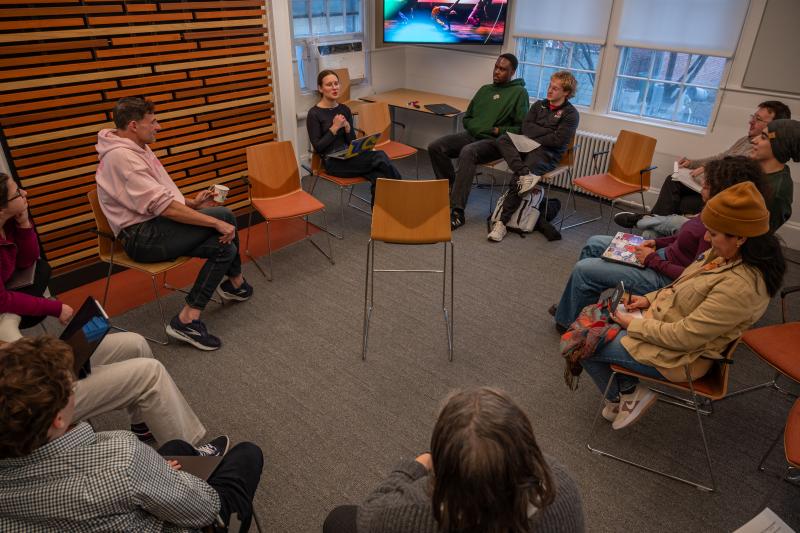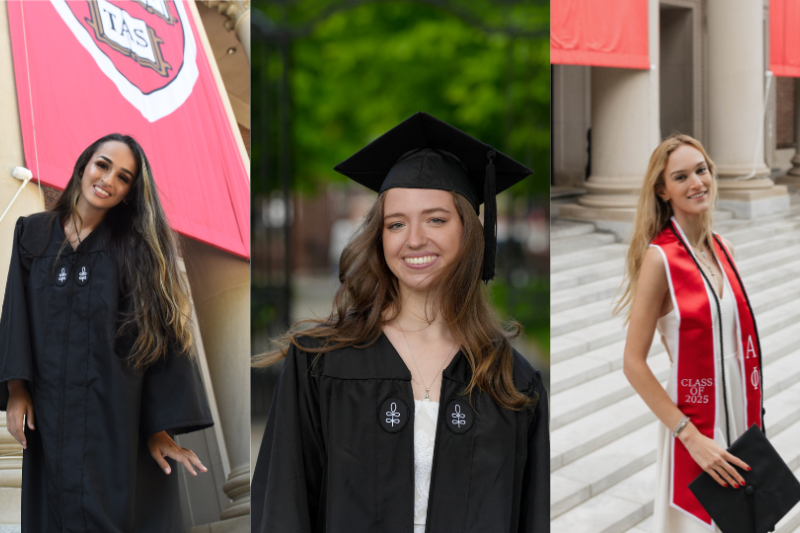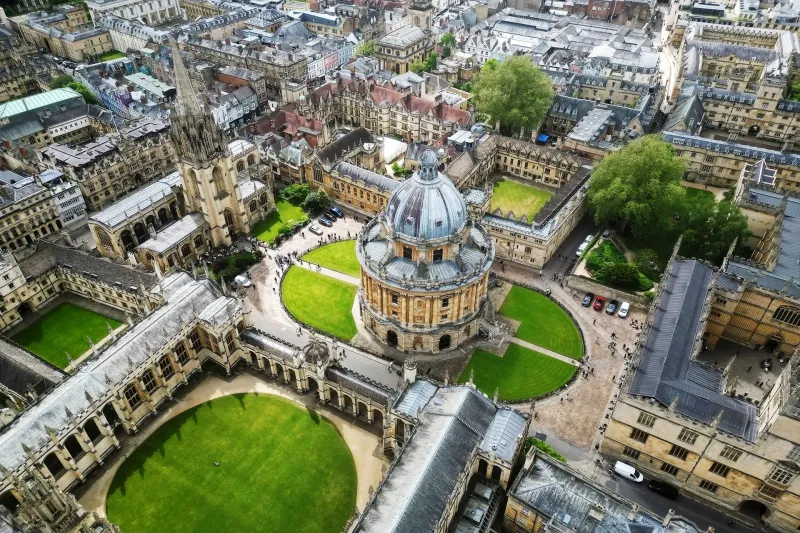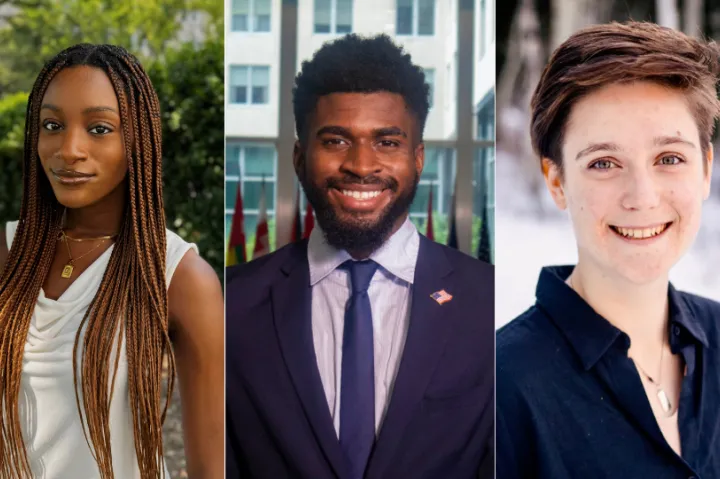
Thesis Spotlight: Global Visionaries
Dara, Social Studies and African Studies
Regulatory Cocoa-mpliance: The EU Deforestation Regulation and Ethical Intervention in the Cacao and Chocolate Industries

Born on World Chocolate Day, this topic didn’t just find Dara; it’s been growing in her family’s roots for generations.
Dara’s great-grandfather was a cocoa farmer in the Western Region of Nigeria. Although he never received a formal education, he worked relentlessly to ensure his children could, laying the foundation for Dara’s journey from her hometown of Memphis, Tennessee, to Harvard. “My own story is one of opportunity through agriculture and commodity production,” Dara said. “I research these industries today because I want future generations to be able to tell the same story."
Utilizing mixed methods of social theory, ethnography, familial autobiography, quantitative discourse analysis, and ArcGIS geospatial analysis, her thesis explores how policymakers are often distant from the hands that harvest cocoa. Due to this disconnect, even the most well-meaning regulations often fall short without fully understanding the systems they attempt to reform.
At the core of her thesis, she examines how global supply chains, specifically those that bring us chocolate, are evolving in response to rising environmental consciousness. Dara focuses on the European Union Deforestation Regulation (EUDR), a policy designed to curb environmental degradation by requiring companies to verify that imports such as cocoa aren’t tied to deforested land. Yet, these regulations often leave out the voices of the farmers they aim to protect. She introduces the concept of post-materialist values—concerns like climate change that transcend income but increasingly shape policy. While these values matter, Dara argues they can unintentionally elevate ideals over economic equity.
Dara’s thesis challenges Harvard and the broader global community to rethink approaches to international trade and environmental policy. It calls for more ethical, inclusive policymaking and serves as a bridge between environmental justice and economic fairness. Dara will continue this work as founder of ReGeneración, an initiative through the Fine Cacao and Chocolate Institute. Her social enterprise will equip underemployed youth with skills to document reforestation efforts, create polygon maps required by the EUDR, and help producers generate extra revenue.
Jama, Government and African American Studies
Decriminalizing ‘Buggery’ Laws in the Postcolonial Anglophone Caribbean: A Socio-Legal Comparative Analysis of Anti-Homosexual Penal Codes in Jamaica and Barbados
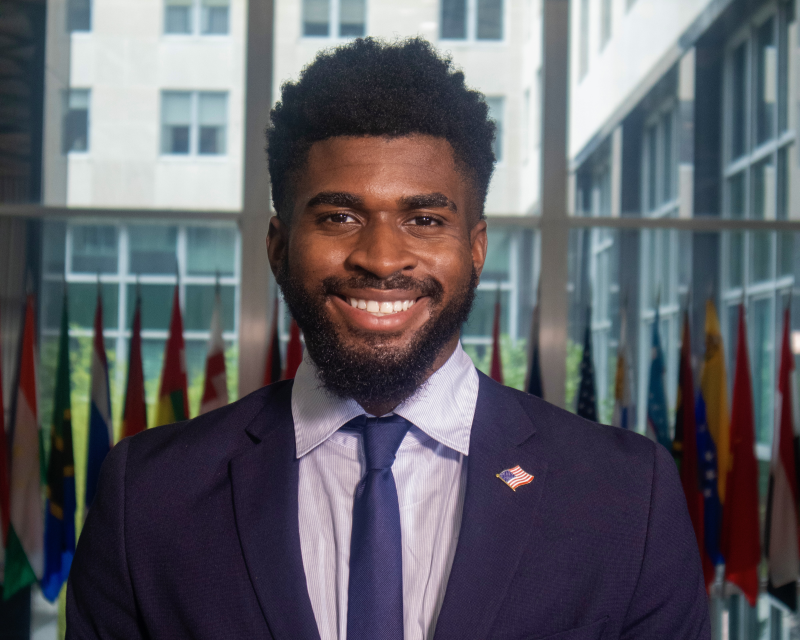
Jama’s thesis is deeply tied to his identity as a Black gay man; coming from Kingston, Jamaica, and Barstow, California, he never imagined he’d attend an institution like Harvard. In his acknowledgments, Jama writes that stories like his are far too common across the Caribbean, dedicating his thesis “to all the LGBTQ+ citizens of the British Commonwealth navigating liminal and (re)criminalizing spaces—those who feel trapped, unseen, or unheard.”
It also analyzes the criminalization of same-sex activity in former British colonies, focusing on Jamaica and Barbados. He argues that British colonial laws—not homosexuality itself—were exported to the Caribbean, leaving a lasting imprint on contemporary legal and social systems.
He conducted a multi-method study that included small-N case studies, legal analysis, over 90 interviews, and archival research across four national archives. Jama also participated in key international conferences, such as CHOGM in Samoa, to explore the intersections of diplomacy, advocacy, and policy in LGBTQ+ rights.
“There remains a striking gap in research on the structure and influence of anti-LGBTQ+ networks operating at the local level,” Jama said. To address this, his thesis proposes a model illustrating how international LGBTQ+ rights norms are diffused, adapted, and contested within localized contexts.
Understanding how homosexuality has been framed in the Anglo-Caribbean is critical. Looking ahead, Jama hopes to apply this framework to other Anglo-Caribbean nations and the broader Commonwealth to support activists, legal practitioners, and political leaders in developing strategies that embed LGBTQ+ rights within local contexts.
Zazie, Social Sciences
From Geneva to Jumla: Equity, Evidence, and the Politics of Knowledge in Global Vaccination

Inspired by the core question, “How does an infinitely detailed local context get reduced to a line in a report or a number in a spreadsheet thousands of miles away?”, Zazie’s thesis traces how knowledge is produced, transformed, and often lost in the translation between global health bureaucracies and local realities.
At stake is a matter of life and death. The way communities are represented directly shapes their access to vaccines against various diseases.
Through studying Gavi, the Vaccine Alliance, their findings complicate top-down narratives in global health, revealing how contradictions and misrecognitions—fueled by political, historical, and economic forces—emerge across every level of the system. Tools meant to clarify, including forms and metrics, often obscure the very realities they’re meant to capture.
Zazie’s research journey to an implementation site in rural Nepal unveiled deeper complexities. It left them with a profound appreciation for those working tirelessly to deliver vaccines under immense constraints and urged a call for Gavi to reimagine accountability beyond numbers. Zazie credits their thesis to “the patience, generosity, and care of the many interlocutors, mentors, friends, and community members who guided and supported me—from Geneva to Nepal.”

